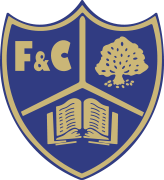Writing
English Intent Statement
At Fulwood and Cadley, our aim is to provide an English curriculum that engages and inspires our children's love of literature whilst also developing their fundamental skills of spoken and written language in order to become thoughtful readers and creative writers. Our curriculum is based around the principles of the Talk for Writing process which reflects the importance of spoken language that underpins the development of reading and writing, not only in English but across the whole curriculum. Our children are provided with opportunities to widen their vocabulary and develop their understanding of grammar for reading, writing and spoken language. They are taught to use discussion as a vehicle for learning moving on to developing crucial skills to allow them to write clearly, accurately and coherently for a range of context, purposes and audiences. Most importantly, our writing curriculum aims to inspire our children to feel confident in their ability to write and become passionate in their ability to be creative.
We are a Talk for Writing School
In 2018, Fulwood and Cadley implemented a new approach to teaching the English curriculum called Talk for Writing. This is used from EYFS through to Year 6. Talk for Writing was developed by the author Pie Corbett. It is fundamentally based on the key principles of how children learn. Talk for Writing enables children to imitate the key language they need orally before they try reading, analysing and recording it. It is a fun, creative yet also rigorous approach to develop writers.
The Writing Process
Talk for Writing has three key phases which work together to develop knowledge, confidence and independence in writing, Children normally take part in a 'Have a go' or 'cold task' before the unit begins to allow the teacher to identify targets and tailor the model text to suit the progressive steps and targets for the class.
Imitation
During this phase the children create actions to accompany the oral re-telling of the story. They also create story maps, using pictures and symbols, to depict actions and events from the text. The key to success for the children is that they internalise the text type through repetition and rehearsal. They also begin to look closely at the language and text features that have been used through the eyes of a reader and the eyes of a writer. This supports children in developing retrieval, prediction and inference skills whilst also looking at the writer's choice of words, punctuation or sentence structure to enable a desired effect on the reader. During this phase, children also develop their grammar, punctuation and spelling through fun games.
Innovation
During this phase, the teacher and the children begin to change aspects of the model text using their own ideas. They explore the text using different characters, settings or events and new ideas for descriptive language whilst sticking closely to the underlying structure. This process enables the children to write their own versions through developing their ability to generate good words and phrases. It is during this phase that children also look at how they can address their targets to progress their writing. This stage involve teacher modelled or shared writing alongside structure feedback to allow children to progress towards their class or individual targets for English.
Invention or Independent Application
During this phase the children plan and write their own story based on the text type they have been learning. They experiment with the ideas and begin to explore their own style of writing using sentence types from the model text before finally writing their version of the text. We call this a 'show what you know' or 'Hot task.' Children are supported in their process by the use of their writer's toolkits which they have built upon throughout the unit of writing.
For further information please visit the website www.talk4writing.co.uk .
English Class Curriculum Maps (these have been temporarily removed for a short while on 08.12.21 for class teachers to review and update)
- Class 1 English Curriculum Map.pdf
- Class 2 English Curriculum Map.pdf
- Class 3 English Curriculum Map.pdf
- Class 5 English Curriculum Map.pdf
- Class 6 English Curriculum Map.pdf
- Class 7 English Curriculum Map.pdf
